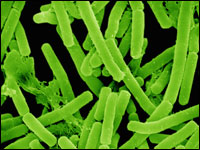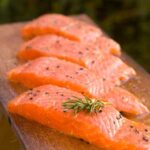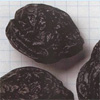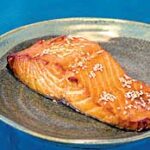 Drs. Jonette Keri and Rajiv Nijhawan from the University of Miami in Florida have reviewed the evidence.
Drs. Jonette Keri and Rajiv Nijhawan from the University of Miami in Florida have reviewed the evidence.
Here are the highlights. Continue reading Is there a diet-acne connection?
 Drs. Jonette Keri and Rajiv Nijhawan from the University of Miami in Florida have reviewed the evidence.
Drs. Jonette Keri and Rajiv Nijhawan from the University of Miami in Florida have reviewed the evidence.
Here are the highlights. Continue reading Is there a diet-acne connection?
 The surest way to know that there is no truly effective treatment for a condition is to count the number of treatment recommendations. The more recommendations, the less likely it is that any of them have a significant effect. I’m not sure if there is a tipping point. Whether 6 or 12 or 20 recommended treatments guarantee that you will have less than complete cure.
The surest way to know that there is no truly effective treatment for a condition is to count the number of treatment recommendations. The more recommendations, the less likely it is that any of them have a significant effect. I’m not sure if there is a tipping point. Whether 6 or 12 or 20 recommended treatments guarantee that you will have less than complete cure.
Here are some of the recommendations from just one article.
 Researchers at the University of Pennsylvania School of Medicine, in Philadelphia, compared the fatty acid profiles of different commercially available US tuna products. Continue reading Does it matter if your tuna is packed in water or oil?
Researchers at the University of Pennsylvania School of Medicine, in Philadelphia, compared the fatty acid profiles of different commercially available US tuna products. Continue reading Does it matter if your tuna is packed in water or oil?
 A higher intake of fruits and vegetables is associated with a lower risk of ischemic heart disease (reduced blood supply to the heart muscle).
A higher intake of fruits and vegetables is associated with a lower risk of ischemic heart disease (reduced blood supply to the heart muscle).
Researchers at the University of Oxford, in the UK, assessed the relation between fruit and vegetable intake and risk of death from ischemic heart disease in the European Prospective Investigation into Cancer and Nutrition (EPIC)-Heart study. Continue reading Fruit, veggies, and the risk of death from ischemic heart disease
 Despite the reported benefits, weight loss isn’t always advised for older adults because some studies have associated weight loss with increased mortality.
Despite the reported benefits, weight loss isn’t always advised for older adults because some studies have associated weight loss with increased mortality.
Researchers from North Carolina and Maryland, put this belief to the test. Continue reading Does losing weight reduce your risk of early death?
 Researchers at the Centers for Disease Control and Prevention examined the relationship between 4 low-risk behaviors and mortality among a group of people in the United States. Continue reading Effect of low-risk lifestyle behaviors on the risk of dying
Researchers at the Centers for Disease Control and Prevention examined the relationship between 4 low-risk behaviors and mortality among a group of people in the United States. Continue reading Effect of low-risk lifestyle behaviors on the risk of dying
 Among nutritional factors, dried plum (prunes; Prunus domestica L.) is most effective for preventing and reversing bone loss.
Among nutritional factors, dried plum (prunes; Prunus domestica L.) is most effective for preventing and reversing bone loss.
Researchers in Oklahoma and Florida examined the extent to which dried plum reverses bone loss in osteopenic postmenopausal women. Continue reading Benefits of prunes for postmenopausal women
 Dietary advice is the basis of treatment of diabetes, but there’s uncertainty about the effects of polyunsaturated fatty acids.
Dietary advice is the basis of treatment of diabetes, but there’s uncertainty about the effects of polyunsaturated fatty acids.
Researchers at Uppsala University, in Sweden, compared the effects of diets rich in omega-3 or omega-6 fatty acids on glucose and lipoprotein metabolism in these patients. Continue reading Benefits in type 2 diabetes of eating fatty fish
Now, researchers at Imperial College, in London, UK, have reviewed the evidence. Continue reading Do fruit and veggies lower colorectal cancer risk?
 Researchers at the University of Copenhagen, in Frederiksberg, Denmark, compared the effects of a diet rich in palm olein (the liquid portion of a fat) to fractionated palm oil, olive oil, and lard. Continue reading Effects of palm oil on cholesterol
Researchers at the University of Copenhagen, in Frederiksberg, Denmark, compared the effects of a diet rich in palm olein (the liquid portion of a fat) to fractionated palm oil, olive oil, and lard. Continue reading Effects of palm oil on cholesterol
 The benefits of eating fish on heart attack risk is mostly due to the effects of omega-3 fatty acids. But, fish also contains methylmercury, which may increase the risk of heart attack.
The benefits of eating fish on heart attack risk is mostly due to the effects of omega-3 fatty acids. But, fish also contains methylmercury, which may increase the risk of heart attack.
Researchers at Umea University, in Sweden, determined how eating fish and red blood cell concentrations of mercury and selenium are related to the risk of a heart attack and whether omega-3 fatty acids are protective. Continue reading Balancing the heart benefits vs mercury risks in fish
 For decades, politicians like Mayor Michael Bloomberg of NYC have tried to get Americans to eat less salt.
For decades, politicians like Mayor Michael Bloomberg of NYC have tried to get Americans to eat less salt.
Now Scientific American asks, “But if the US does conquer salt, what will we gain?”
Answer: bland french fries. Continue reading Finally, sanity in the salt wars
 Eating antioxidant-rich foods may reduce the risk of stroke.
Eating antioxidant-rich foods may reduce the risk of stroke.
Researchers at Karolinska Institutet, in Stockholm, Sweden, examined the association between dietary total antioxidant capacity and stroke incidence in 2 groups of women. Continue reading Antioxidants and the risk of stroke in women
 Fat around the heart may be detrimental for cardiac function, especially in patients with metabolic disease such as diabtes.
Fat around the heart may be detrimental for cardiac function, especially in patients with metabolic disease such as diabtes.
During the Radiological Society of North America meeting, researchers from Leiden University Medical Center, in Netherlands, assessed the long-term effects of initial weight loss using caloric restriction on pericardial fat content and cardiac function in patients with type 2 diabetes mellitus. Continue reading Dieting to improve heart function in diabetes
 During the American Diabetes Association 71st Scientific Sessions, researchers from The University of Texas Health Science Center at San Antonio reported on (abstract 0062-OR) the relationship between drinking diet soft drinks and long-term changes in waist circumference. Continue reading Do diet soft drinks predispose to obesity?
During the American Diabetes Association 71st Scientific Sessions, researchers from The University of Texas Health Science Center at San Antonio reported on (abstract 0062-OR) the relationship between drinking diet soft drinks and long-term changes in waist circumference. Continue reading Do diet soft drinks predispose to obesity?
 After more than 2 decades of warning us about the evils of too much salt in the diet, an international group of researchers looked for an association between estimated urinary sodium and potassium excretion (surrogates for intake) and cardiovascular events in patients with established cardiovascular disease or diabetes mellitus. Continue reading New view of the risks of sodium intake on health and disease
After more than 2 decades of warning us about the evils of too much salt in the diet, an international group of researchers looked for an association between estimated urinary sodium and potassium excretion (surrogates for intake) and cardiovascular events in patients with established cardiovascular disease or diabetes mellitus. Continue reading New view of the risks of sodium intake on health and disease
 If you exercise enough, is it possible to selectively lose abdominal fat?
If you exercise enough, is it possible to selectively lose abdominal fat?
No, say researchers at Wake Forest University in Winston-Salem, North Carolina and the State University of New York at Buffalo. Continue reading CAM Archive: Effect of exercise intensity and belly fat
 The Financial Times reports, “A new hybrid variety richer in chemicals linked to a reduced risk of cancer and cardiovascular problems goes on sale on Tuesday” in the UK.
The Financial Times reports, “A new hybrid variety richer in chemicals linked to a reduced risk of cancer and cardiovascular problems goes on sale on Tuesday” in the UK.
Here’s what we know. Continue reading Hybrid broccoli
 Researchers at Cornell University, in Ithaca, New York, tested the hypothesis that the mechanism responsible for reduced intake was not the dietary composition of the meal replacement, but the controlled portion sized meals. Continue reading Portion size is the answer for losing weight
Researchers at Cornell University, in Ithaca, New York, tested the hypothesis that the mechanism responsible for reduced intake was not the dietary composition of the meal replacement, but the controlled portion sized meals. Continue reading Portion size is the answer for losing weight
 Exposure to methylmercury from eating fish is linked to an increased risk of cardiovascular disease.
Exposure to methylmercury from eating fish is linked to an increased risk of cardiovascular disease.
Researchers in the US looked for a relationship between mercury exposure and coronary heart disease, stroke, or total cardiovascular disease. Continue reading Mercury exposure and the risk of cardiovascular disease